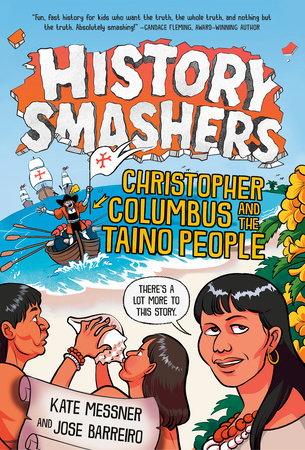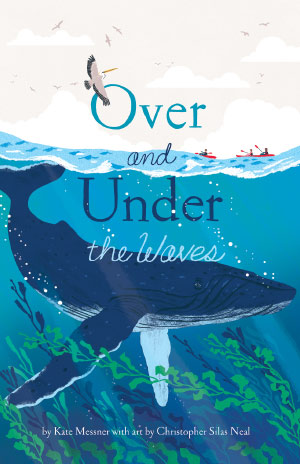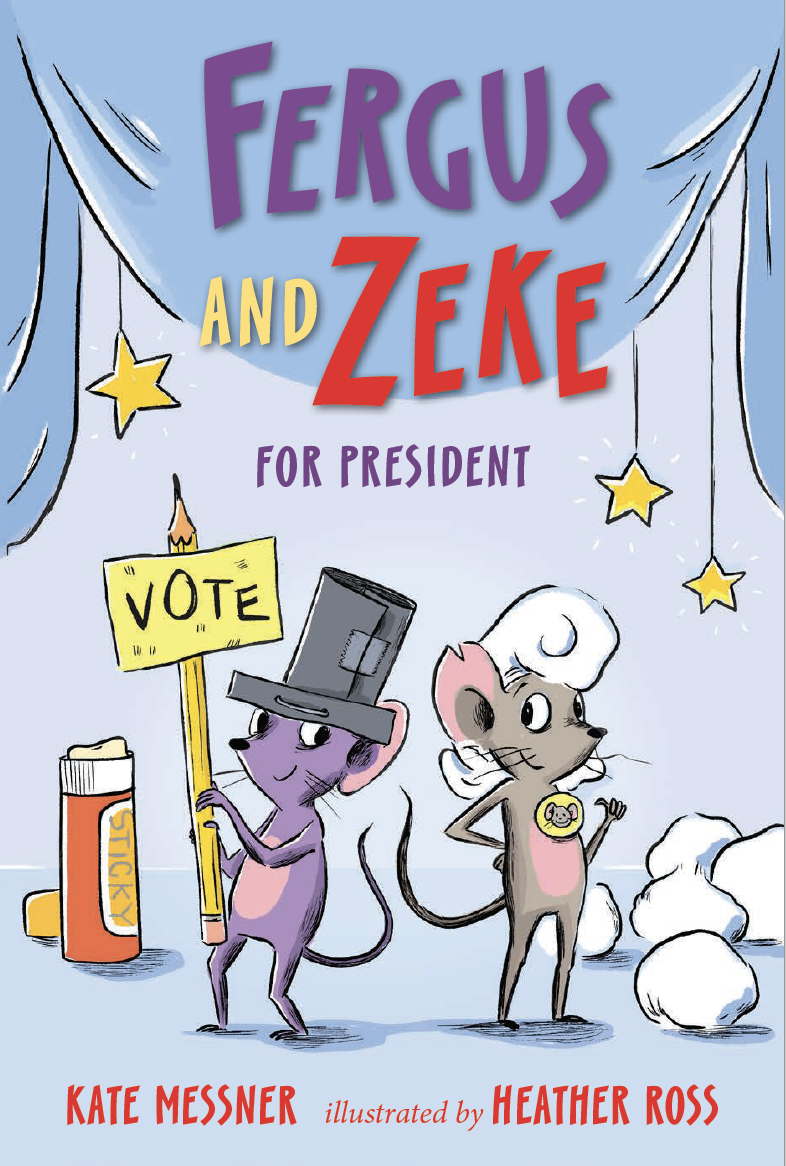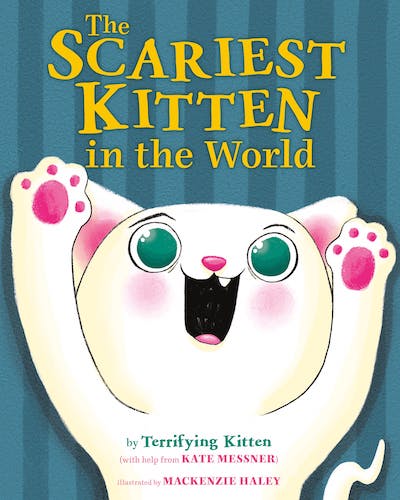Good morning! Sunday is check-in day at Jen’s blog, Teach Mentor Texts, so be sure to visit her today for some words of encouragement and to check in for some encouraging conversation with fellow TW participants.
Our guest author here today is Susan Hill Long, whose books include THE MAGIC MIRROR: CONCERNING A LONELY PRINCESS, A FOUNDLING GIRL, A SCHEMING KING, AND A PICKPOCKET SQUIRREL and WHISTLE IN THE DARK. She joins us today to talk about literary models in our writing lives.


Writing is about the only profession people assume can be leapt into, like a well-made canoe — plop down, start paddling, and soon you’re there! Published, and sporting a healthy glow, besides. Not you, of course. You’re here! You’re doing the work, learning and practicing and sharing along the way. You know that writing is more like carving the canoe, from a giant log that first you must fell in dark woods where you may have been lost for a while.
Luckily, there are many tools available to the lumberjack/paddler/writer. There are classes. There are advanced degrees. There are craft books and podcasts and peers. But one thing I sometimes hear from writers, beginning or expert, is how they stop reading, when they start writing. “I don’t want to be influenced,” they say. Or, “I don’t want to discover someone’s already written my book.” Or, “If I read Kate DiCamillo’s latest marvel, I swear I’ll pack it in.”
These are understandable concerns. But to give up reading is to ignore the writer’s ultimate (and most enjoyable) tool. Have you ever seen art students arranged around a painting in a museum, copying the work of a master? Of course – that’s partly how it’s done. Like many, I am self-taught. That is, I didn’t attend an MFA program or take creative writing classes. I majored in Art History, which prepared me for a vibrant career as a “temp.” But I’m only “self-taught” insofar as I had enough desire to learn and to practice that I used the countless works available to me for study. In this pursuit I’m in excellent company.
In her slim volume THE SCENE BOOK: A Primer for the Fiction Writer, Sandra Scofield tells of a friend who structured her own story using an admired book’s chapters one by one to lay out scenes. In the end, her novel was, Scofield says, “very much her own, she had a story she was proud of, and she had learned a lot.” Scofield tells us, too, that “Alice Munro has said she enters others’ stories wherever she has a notion, as one enters a room in a house. She connects this habit to her ideas about building up a story of her own around its “soul” in a way that leads to its structure.”
Before starting to write her first manuscript, Kirby Larson says she studied Patricia Reilly Giff’s books thoroughly, even typing two of them out to help her get a feel for the rhythm, pacing and length of a chapter book. In one interview, Barbara O’Connor credits her whole career to Cynthia Rylant. “When I read MISSING MAY,” she says, “I had one of those light bulb moments. I finally GOT voice. And I GOT the importance of place.” Similarly, Barbara O’Connor was fascinated by the shifting viewpoints in JULY 7th by Jill McCorkle, and “filed that away, hoping someday I would be up for the challenge.” Her book GREETINGS FROM NOWHERE is written with four viewpoints.
Many writers go in search of words – out and about in the world, and in the books of writers we esteem – sparkly words, singing words, words that slide or stop. In her sturdy book THE WRITER’S PORTABLE MENTOR, Priscilla Long encourages writers to keep a notebook of interesting words, a personal lexicon. And we can use books we admire not just to study language and technique, but to cultivate our own talent for and love of storytelling. Sandra Scofield, again in THE SCENE BOOK, encourages us to develop that facet of talent by “immersing yourself in more reading, and in reading more diverse stories, such as those by ethnic and immigrant writers, foreign writers, and other tellers of stories far from your experience.”
Remember that we are beginners only for a time, but we are, all of us, forever students.
Keep reading! Keep paddling!





Good morning, Susan!
Awesome post! Thank you.
During summer vacation, I spend more time writing than I do during the school year. I also spend more time reading. We have only been on vacation for a little more than a week, and I have already read a number of books (nothing better than a late night summer reading).
During the school year, I find that I get super motivated after my class Skype’s/FaceTime’s with an author. The day after an author interview, I will share some writing that I did the evening before with my class and this usually adds to the learning experience (the kids tend to listen to an author before they will listen to me – I am the same way:).
Thanks again for the post. Off to build that canoe. Oh yeah, and also finish Echo.:)
Happy reading and writing!
Summer is great for filling the well! ECHO–great choice!
Testing (having tech problems)
Andy, it’s wonderful that summer gives you time to read and recharge. And ECHO is a terrific choice! I’d love to see your towering stack of book spines!
Great post. I also love that during the summer I have time to read and write more.
My worry with mentor texts is that I will be copying someone’s ideas versus inspired by them. Any advice on this? Or am I just being paranoid?
Dave, you’re being paranoid. Just kidding! I think that the more you work with your story, the less present the influences of your mentor text become. Trust that the heart of your own story will beat more strongly in your work than the works that inspired you to begin writing it.
Dave, you’re being paranoid. Just kidding! You’re right to be vigilant about plagiarism. I think, though, that once you jump off from whatever your mentor text inspires you to do, you just have to trust that in time and with work, the heart of your own story will beat stronger than the pulse of the many influences that helped you to begin writing it. Good luck!
What great post! It is always encouraging to hear how published writers stand on the shoulders of mentor authors. I look forward to reading Stacey Shubitz’s new book on using mentor authors. I used to not want to show students samples or models in fear that they would just copy, but now know it is a great way for them to learn. I am also trying to use more student writing as mentor texts too.
As you can tell from my comment much of my writing is to use with my students, but today your post struck me for my own writing too. I am going to try to be more purposeful in leaning on the mentors I admire so much! Yippee for more reading!
I’m so glad if you found the post helpful! I love the sound of your name. Erika Victor is an excellent name for an author. And for a teacher, of course. 🙂
Thanks for the encouraging post. Your words reminded me of a favorite journalism professor who always said, “If want to write well, you must devour books!”
I like that. Gobble them up.
This is a great post, Sue. I love the canoe building image. I, too, read deeply while I’m writing and thinking about writing. Now I’m rushing off to find that Jill McCorkle story! Thanks for posting.
“Remember that we are beginners only for a time, but we are, all of us, forever students.” This is a quote that is going into my notebook. Thank you for sharing your insights!
Good day, Susan. I can’t stop reading. I always have a book at hand, MG, CB, or some PBs in the car. I took a ton of art history in college, but moved over to education my last 2 years at Ohio State. Art gives us a different way to enter a story, too.
This is great advice. Good mantra for life itself!
Thank you for the suggestions on Writer\’s Craft. I was just thinking of starting a notebook to collect words that I find interesting. I\’ve started writing down lines from music that strike a cord with me. Literally!
I think starting a notebook to collect interesting words is a wonderful practice, Jennifer. And I love the idea of writing down lines of music that resonate. (haha!)
Thank you, Susan. I’ve written your quote in my daily journal…”we are beginners for a short time but we re, all of us, forever students.” I agree. We should never stop wanting to learn. (something!)
Thanks for sharing this great reminder. I have several books I look to when I’m stuck on something.
Susan, your encouragement here dovetails so nicely with Jen Vincent’s encouragement to find a mentor text (or video in her case) for the mood of our wip. It’s something I had never considered before….but Jen’s words plus yours really ring true in that I need/want to do this for my WIP. Thank you so much for stopping by today.
I loved what Jen had to say today, too.
I don’t have a specific mentor text or author. I find myself really enjoying authors who give a truly vivid description of settings and characters. I like being able to picture everything clearly in my head.
Yes! I love looking at various books to see how they tackle challenges I’m facing in my writing. If I’m struggling with first lines, I’ll grab a bunch of books and just look at the beginnings to see how they crafted their first lines; same for endings or anything problematic for me. By looking at a number of different books, I don’t copy any one author’s style, but I have “advice” from each author about “how to” meet the challenge. That empowers me to tackle my own challenge again with my newfound arsenal of knowledge!
I am definitely a forever student. I am always continuing to try to better myself in my career and teaching and I am so glad I stumble upon some of the amazing resources that are out there, like this!40
Thank you for covering this topic! I’ve been re-reading books I loved as a youth to try to kick-start my writing this summer. I’ve dug out Elizabeth Enright, L’engle, E.B. White, and so many more. I even have found books by beloved authors that I didn’t know about.
A friend and writing mentor challenged me recently to write a ‘Beauty and the Beast’ story. It has always been my favorite fairy tale, and after my re-reading went through Robin McKinley’s ‘Beauty’ and ‘Rose Daughter’, my friend said I should write my own. Not to ever be seen by anyone, except her, but to flex my writing muscles. It has been an interesting process, teasing out what is necessary to the essence of the story (roses) and what could come and go (does Beauty need siblings?).